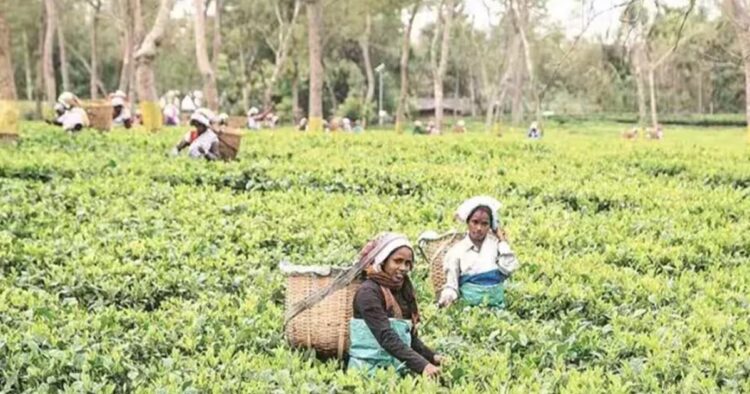The tea industry in Assam, a vital contributor to India’s global tea exports, is grappling with challenges, prompting calls for strategic measures to revitalize it. Nalin Khemani, Chairman of Bharatiya Chai Parishad, emphasized the need for the government’s support in promoting tea overseas to address oversupply issues in the domestic market.
Export Promotion Urgency: Khemani urged the commerce ministry to focus on enhancing tea exports, stating that the current demand is tepid while domestic markets face oversupply. To address this, he suggested that the government collaborate with the Tea Board to introduce a comprehensive tea promotion policy, potentially opening up new overseas markets for Assam’s tea producers.
Budget Session Concerns: As the Union interim budget approaches, concerns about the industry’s health intensify. The session, set to begin on January 31, is crucial for addressing the fiscal needs of various sectors, including the troubled tea industry. Khemani’s call for support comes at a time when the government is expected to lay out financial plans for the intervening period until a new government is formed post-general elections.
Current Challenges and Industry Stress: Post-Covid, tea prices have remained stable, but low sales realization continues to impact the industry. Khemani, speaking from Dibrugarh, a major tea hub, highlighted the stress the industry is facing. He stressed the importance of a self-sustainable model, suggesting that subsidies alone won’t be enough. Khemani appealed to the state government to reduce the industry’s overall social cost burden, addressing the need for sustainable practices.
Social Cost Burden and Sustainable Model: To ensure the industry’s sustainability, Khemani proposed that the government take over the tea estate management’s social cost burden, including the management of garden hospitals. He believes this move would be mutually beneficial for both the tea garden management and the workers, ensuring access to quality medical facilities and reducing the industry’s financial strain.
Global Standing and Industry Struggles: Bharat, the fourth-largest tea exporter globally, faces challenges in maintaining its position amid rising production costs, stagnant consumption, subdued prices, and climate change-induced crop losses. Assam, contributing significantly to India’s tea production, is seeking relief through policy interventions and financial support to address the industry’s woes.
Economic Outlook and Crisil Ratings Report: The Crisil Ratings report of 2023 paints a challenging economic outlook for India’s tea industry. An anticipated 8% degrowth in revenue for the financial year is expected, driven by a decline in exports. Operating profitability is also set to decrease for the second consecutive year, shedding 100 basis points due to lower tea prices, posing further concerns for the industry’s future.
In conclusion, the tea industry in Assam is at a crossroads, facing economic challenges that require immediate attention and strategic interventions. The upcoming budget session and proposed policy changes offer a glimmer of hope for the industry’s revival, but concerted efforts from both the government and stakeholders are essential to ensure a sustainable future for Assam’s tea producers.
















Comments